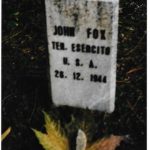
Surprisingly – or maybe not – the first American to vote from outer space did so while on a Russian space station.
Rule §81.35 of the Texas Administrative Code:
(a) A person who meets the eligibility requirements of a voter under the Texas Election Code, Chapter 101, but who will be on a space flight during the early-voting period and on election day, may vote under this chapter. In order to vote by this method, the voter must apply by a Federal Postcard Application (“FPCA”) and meet the requisite deadlines under state law. The FPCA may be submitted by fax or other electronic means.
(b) The National Aeronautics and Space Administration (“NASA”) shall submit in writing to the Secretary of State a method of transmitting and receiving a secret ballot for persons on a space flight during an election period. The Secretary of State shall approve, deny, or request further information from NASA on the proposed method of transmission.
(c) Proposed changes to an approved ballot transmission method shall be submitted in writing to the Secretary of State for approval.
The legislation that enabled this was passed after astronaut John Blaha attempted but failed to vote while in orbit (the state of Texas had no laws permitting electronic ballots at the time). After the law was passed, David Wolf was the first astronaut to successfully vote in orbit from Mir.
Of course, Americans find themselves voting from other remote locations. Paul Coldren writing about voting from Antarctica:
Since I was in Antarctica during the Fall 2022 election, it was important for me to figure out a way to reliably participate in elections at the federal, state, and local levels.
I haven’t moved to Antarctica; I’m simply temporarily residing in Antarctica. I’m still a San Francisco resident and therefore eligible to vote in local elections.
…
When I got to Antarctica, to my surprise, I already had an updated voter registration card waiting for me! It flew down on one of the Winfly flights; it might have even been my flight. Even though I’m getting the ballot via email, they still send a physical confirmation card. This was my first piece of mail I received in Antarctica.
Americans have also found themselves voting from the battlefield, though setting up the mechanics to support this was heavily contested during WW2:
Debate over the bill divided legislators along both partisan and regional lines. Initial drafts of the bill mandated that no soldier would be required to pay a poll tax or make any other type of payment in order to vote. This provision infuriated representatives of the eight southern states (all former members of the Confederacy) that continued to use poll taxes in order to disenfranchise African American voters. Some congressmen accused their southern colleagues of blocking the Soldier Voting Act’s passage just because it might benefit African Americans in uniform. Representative John Jennings of Tennessee vehemently declared that African Americans “are citizens of this country, they are its defenders, and they have the right to vote.” With less than two months to go before the election of 1942, Jennings and his allies finally secured the votes necessary to override supporters of the poll tax. The final bill was signed into law on September 16, 1942. Among the bill’s provisions, it guaranteed that “every individual absent from the place of his residence and serving in the land or naval forces of the United States” was entitled to vote in elections for federal offices.” It also contained a provision which stated that “No person in military service in time of war shall be required, as a condition of voting in any election… to pay any poll tax.”
In the wake of this improbable victory, the bill still failed to live up to its sponsors’ hopes. A mere 28,000 service members, out of nearly four million men and women in uniform in 1942, voted in the election. While the late passage of the bill gave states little time to prepare ballots and send them to soldiers, the bill also failed to make any provisions for soldiers serving overseas to vote. This omission stemmed from the opinion of War Department representatives, who informed Congress that the demands of wartime shipping and slow mail service overseas would preclude the return of overseas soldiers’ ballots by the election.
It’s easier to vote from overseas now, in part thanks to the Federal Voting Assistance Program.
As Andy Craig put it, America has a glorious tradition of voting:
The state is at its core the institution of violence, the monopoly on the use of force. It is odd that we limit this propensity by expanding the number of people who participate in it, who have a hand in directing it, but the arrangement works like no other can. It is undeniable that democracies have been more liberal, more prosperous, more rights-respecting than any of their autocratic alternatives. They are not immune from rebellions, coups, civil wars, chaos and disorder, blood in the streets, nor from committing massive injustices and abhorrent depravities. But they are vastly less prone to these things, and much more capable of correcting them.
When we include groups of people previously excluded from the democratic process, we are not just tinkering with political incentives, as important as those are. We are making a commitment to respect their full and equal membership in our society. We are acknowledging them as our equals, and receiving that same acknowledgement in return.
…
The people who make our elections happen are in a very real way peacemakers. And so are we, when we partake of what they are giving us. Freedom, security, justice … the recognition in each other of the innate worth of our shared humanity. The same sentiment can be expressed in more secular terms, but if you’re so inclined, it is the sense that we are all, without exception, created in the image of God. Created equal and endowed by our Creator with certain inalienable rights. That we ought not inflict harm on each other, despite the fact that we can. The promise of, as Lincoln put it, the better angels of our nature.
If you are reading this, you are probably not on the International Space Station or in Antarctica, so it is probably easier for you to cast your ballot. Many elections are consequential, but this one is especially so. If you can vote, please do so!







